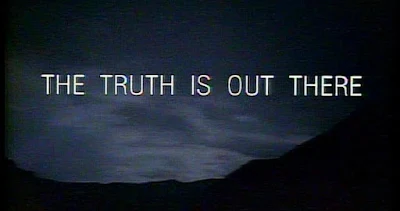THE ULTIMATE CONSPIRACY THEORY
By
Lonnie C Hendrix aka Miller Jones
A friend (who is also part of the Armstrong Church of God culture) recently forwarded me a couple of articles on the mechanics of conspiracy theories. Although his email did not contain any commentary, it was obvious that he felt these articles had a high degree of relevance to our shared experience in Armstrongism.
The first article appeared in the BBC’s Focus Magazine (online edition) and was titled, “What makes a conspiracy theory?” The article was posted 5 September 2018 by Moya Sarner and makes some very interesting points that I think most ACOG folks would find interesting.
Sarner states: “Conspiracy theorists tend to believe that everyone else is being deceived, apart from themselves. The methods of deception, they believe, are elaborate, complex, ongoing and executed almost perfectly – pulling the wool over the eyes of those who haven’t yet ‘seen the light’.” Armstrong taught his followers that they alone had the TRUTH, and that the rest of the world (including Christianity at large) were deceived. He taught that Satan and the Roman Catholic Church had plotted and executed an elaborate, complex and ongoing scheme to change God’s laws and pervert/distort doctrinal truth.
Sarner goes on to say that conspiracy theorists employ selective proofs and reject or ignore any evidence which contradicts their thesis. Continuing, we read: “Conspiracy theories are often based not on hard evidence, but on picking holes in the mainstream narrative, pointing out what does not fit or does not seem to have an explanation, and using this as evidence that the conspiracy theory must be true.” Armstrong loved to point out inconsistencies in the narrative of Traditional Christianity (e.g. the notion of playing a harp all day while lounging on a cloud, being tormented in the flames of hell, three days and three nights, the pagan origins of Christian holidays, etc.) In short, he described these things in such terms to his readers that their absurdity made his teachings seem like the epitome of reason and common sense.
In “The rise of the Flat Earthers” (same magazine and author), Sarner points out that these theories are often completely unsupported by scientific evidence; “But conspiracy theorists question the institutions that provide this evidence, and countering their beliefs with logical reasoning doesn’t seem to work.” That should also sound familiar to anyone who has read or heard Armstrong’s teachings. Herbie often ridiculed theologians, scientists and intellectuals.
Why are we susceptible to these theories? Referring to an expert in the field, Sarner writes: “‘Our brain has a bias towards seeing meaning rather than just chaos, so sometimes we may think we see a pattern when it doesn’t really exist.’ He explains that this has evolutionary benefits: if a noise in the bushes is believed to be caused by a tiger rather than the wind, the listener will take evasive action which could save his life. ‘So when it comes to conspiracy theories, it’s all about taking ambiguous information and weaving it all together, spotting the patterns and connecting the dots.’” In other words, there has to be an explanation for what’s going on in the world, AND THIS MAKES SENSE TO ME!
Likewise, Sarner informs us that there is this thing called “proportionality bias, where we assume that if something big happens, such as a terrorist attack or a president being assassinated, something big must have caused it.” Think about this in relation to Armstrongism. All of the violence, chaos and confusion in the world made sense to us when we viewed it through the lens of Herbie’s teachings. Yes, the devil had to be behind it all – it would take someone/something that powerful to generate this mess!
Finally, Sarner points out that there is evidence to suggest that the folks who are most likely to fall for these theories often experience some level of anxiety or paranoia over their surroundings. Moreover, Sarner concludes that “Recent studies have also found that people who are more likely to believe in conspiracy theories also tend to have a need for uniqueness – a desire to be in the small group of people who are ‘in the know’.” We were among the chosen few who were in the know.
Yes, when we consider the phenomenon of conspiracy theories, it becomes clear to us that we fell for one of the grandest conspiracy theories of all time. As a fellow traveler, I know that the path back to reality and sanity can be very painful. I also know that there was a certain kind of solace and comfort in knowing THE TRUTH, and in being part of the few who were not deceived; but facing reality has its own rewards. After all, we may not be part of a select few; but it can still be inspiring to understand that we share this planet and life with billions of brothers and sisters! What do you think?


